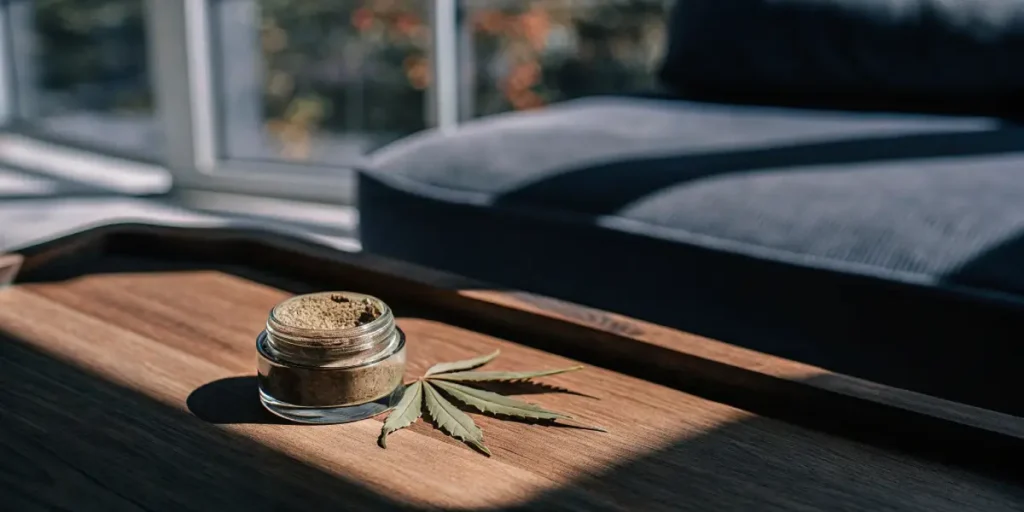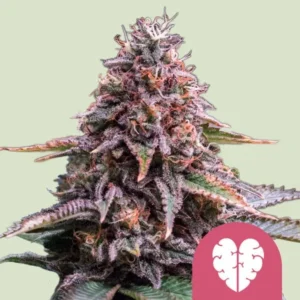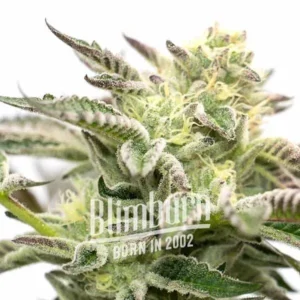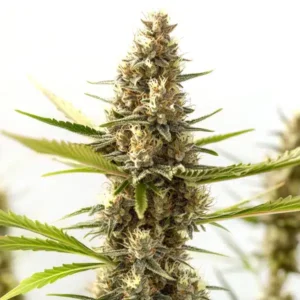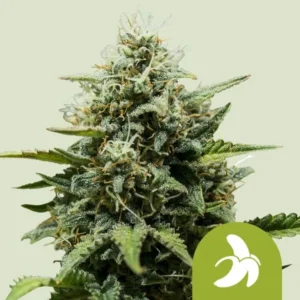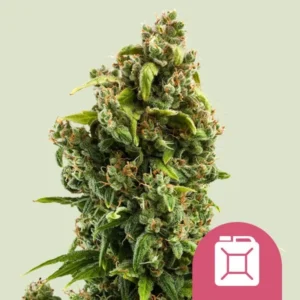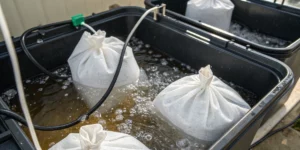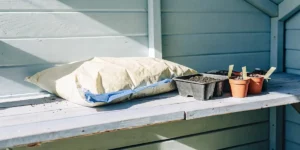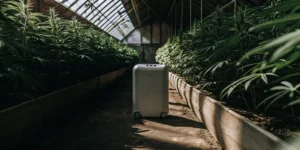Quick Summary: Kief does not expire immediately, but it degrades over time due to exposure to air, light, heat, and humidity. When stored properly in airtight glass jars in a cool, dark environment, kief can retain potency for several months to up to a year. Monitoring texture, aroma, and color is essential to determine whether kief has lost quality or gone bad.
Kief is a treasured part of the cannabis plant, often considered a potent concentrate. It accumulates as a powdery substance that can elevate your cannabis experience. But if you’re wondering, does kief expire, you’re not alone. It’s important to understand how to keep your kief fresh and potent for as long as possible.
Recommended Strains
Pink Mist
|
|
THC | 19% - 20% (Medium) |
|
|
Lineage | Purple Thai x Black Haze |
|
|
Type | Feminized |
|
|
Height | 5.91 ft | 1.8 m |
|
|
Yield | Medium |
|
|
Yield Indoor | 1.47 - 1.64 oz/ft² | 450 - 500 g/m² |
|
|
Yield Outdoor | 12.35 - 14.11 oz/plant | 350 - 400 g/plant |
|
|
Flowering Time | 9 - 10 weeks |
|
|
Phenotype | 30% Indica / 70% Sativa |
|
|
Effects | Creative, Euphoric, Uplifted |
|
|
Flavors | Blueberry, Candy, Earthy |
Gorilla Sherbet
|
|
THC | 26% - 30% (High) |
|
|
Lineage | GG4 x Sunset Sherbert |
|
|
Type | Feminized |
|
|
Height | 4.92 ft | 1.5 m |
|
|
Yield | High |
|
|
Yield Indoor | 1.97 oz/ft² | 600 g/m² |
|
|
Yield Outdoor | 21.16 - 28.22 oz/plant | 600 - 800 g/plant |
|
|
Flowering Time | 8 - 10 weeks |
|
|
Phenotype | 70% Indica / 30% Sativa |
|
|
Medical | Arthritis, Insomnia, Pain |
|
|
Effects | Energetic, Giggly, Relaxed |
|
|
Flavors | Chocolate, Citrus, Earthy |
A related and equally common question is: can kief expire if stored for too long? While kief doesn’t spoil like food, its cannabinoids and terpenes gradually degrade, which means potency, aroma, and overall quality decline over time without proper storage.
Kief, the fine trichome crystals found on cannabis flowers, is rich in cannabinoids. These are the compounds that give cannabis its effects. However, like any organic substance, kief can degrade over time if not stored properly. Learning how to store kief long term is key to maintaining its quality.
Whether you’re a first-time buyer or a seasoned grower, knowing the best way to preserve kief freshness can save you from disappointment. Proper storage methods ensure that your kief remains as potent as the day you collected it. Let’s delve into the factors that impact its longevity.
Factors Affecting Kief’s Longevity
Kief can last quite a while if stored correctly. But several factors can influence its shelf life. Temperature, humidity, and light exposure are the main culprits when it comes to degradation. Controlling these elements is crucial in preserving kief’s quality.
Many users also ask, how long does kief last under normal conditions? When protected from light, air, and humidity, kief can maintain strong potency for 6 to 12 months, though minor cannabinoid degradation begins gradually after collection.
Exposure to air can also cause kief to lose its potency over time. Oxygen can degrade cannabinoids and terpenes, diminishing the effectiveness and aroma of your kief. It’s essential to minimize air exposure to maintain its integrity.
Additionally, the type of container you use can play a significant role in how to store kief long term. Materials that are not airtight can allow unwanted elements to seep in, hastening the degradation process. Thus, investing in quality storage solutions is indispensable for those who wish to extend the shelf life of kief in jars.
Understanding these factors allows you to make informed decisions about storing your kief. Whether you choose glass jars or vacuum-sealed bags, being aware of the potential risks can help you avoid common pitfalls and ensure that your kief remains fresh and potent.
Temperature and Humidity
Temperature fluctuations can harm kief. Extreme heat can dry it out, while cold temperatures can cause condensation. Both scenarios can lead to a loss in potency. Aim for a consistent, cool environment to store your kief.
Humidity is another enemy. High moisture levels can lead to mold growth, rendering your kief unusable. Keep your kief in a dry place to prevent this. Investing in a humidity control pack can be a wise decision.
Maintaining a stable temperature and humidity level is vital for the longevity of your kief. Inconsistent environmental conditions can accelerate the degradation process, leading you to question, “does kief expire sooner than expected?” By implementing proper storage techniques, you can maximize the shelf life of kief in jars.
Incorporating tools like hygrometers can provide real-time data on the storage environment, helping you make necessary adjustments. This proactive approach is the best way to preserve kief freshness, ensuring the cannabinoids and terpenes remain intact and effective.
Optimal Storage Methods
When it comes to storing kief, airtight containers are your best friend. Glass jars with tight seals are highly recommended. They help block out air and moisture, keeping your kief fresh for a longer time.
Mason jars are a popular choice. They are readily available and come in various sizes, making them perfect for different quantities of kief. Just ensure they are stored in a cool, dark place to maximize their effectiveness.
For those who frequently ask, “does kief expire quickly if not stored properly?” the answer lies in choosing the right storage method. An airtight container minimizes the exposure to factors that contribute to degradation. This is how to store kief long term and maintain its potency.
In addition to glass jars, consider utilizing vacuum-sealed bags for bulk kief storage. While they might not offer the convenience of jars for daily use, they are excellent for long-term preservation, keeping air and moisture at bay and extending the shelf life of kief in jars.
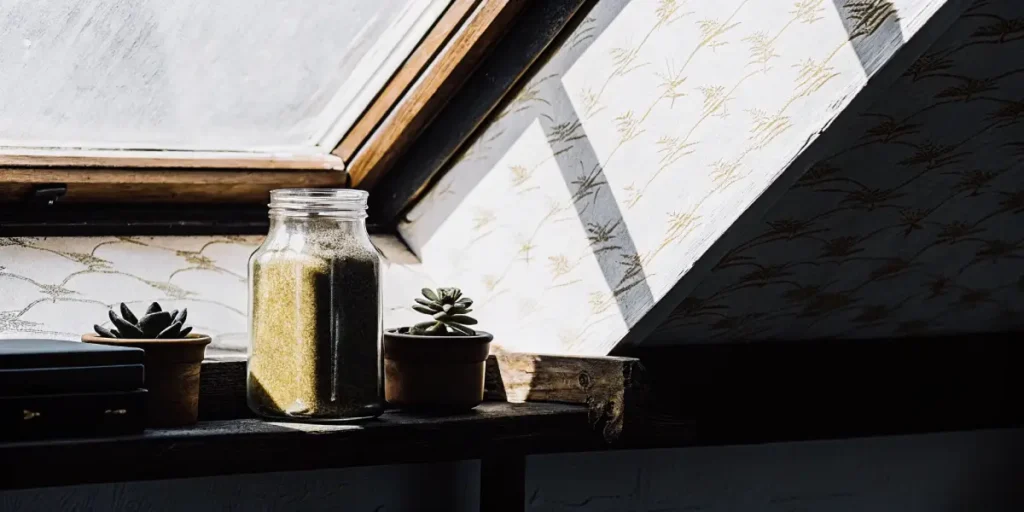
Comparative Table of Mentioned Cannabis Strains
| Strain | THC Level | Lineage | Type | Height | Notable Characteristics |
|---|---|---|---|---|---|
| Pink Mist | 19–20% (Medium) | Purple Thai x Black Haze | Feminized | 5.91 ft (1.8 m) | Frosty trichomes, colorful leaves |
| Gorilla Sherbet | 26–30% (High) | GG4 x Sunset Sherbert | Feminized | 4.92 ft (1.5 m) | High THC potency, dense resin production |
Using Jars and Containers
Using a glass jar is not just about keeping air out; it also protects kief from light exposure. Light can degrade cannabinoids, so a dark cabinet or drawer is ideal for storage. This method is also applicable when storing cannabis strains like Purple Kush from Global Green Genetics.
Some growers prefer vacuum-sealed bags for long-term storage. These bags remove air entirely, which is great for preserving potency. However, they are not as convenient for frequent use, as each opening allows air to enter.
When deciding on storage options, it’s crucial to balance convenience with preservation. If you use kief regularly, a glass jar in a dark place offers easy access while still ensuring protection from degrading factors. This strategy answers the question, “how to store kief long term without sacrificing quality?”
Combining different storage methods can cater to varying needs. For instance, use glass jars for immediate consumption and vacuum-sealed bags for surplus stock. This dual approach addresses the concerns of both daily users and those looking to extend the shelf life of kief in jars.
Signs Kief Has Gone Bad
Knowing the signs kief has gone bad is crucial. Mold is a clear indicator. If you see any fuzzy or discolored patches, it’s best to discard the kief immediately. Consuming moldy kief can be harmful to your health.
Some consumers even search, can keef go bad, using alternative spellings. The reality is yes kief can deteriorate if exposed to moisture or contaminants, leading to mold growth or significant terpene loss, which compromises both safety and effectiveness.
Another sign is a significant loss in aroma. Fresh kief should have a strong, pungent scent. If it smells faint or off, it may have lost its potency. This often happens when kief has been exposed to air or light for too long.
Texture changes can also be telling signs kief has gone bad. If you’re noticing a sticky or clumpy consistency, it’s likely that moisture has compromised its quality. Regularly checking your kief can prevent unpleasant surprises and ensure only the best experience.
Paying attention to visual cues and scent is essential in determining whether your kief is still usable. Trusting your senses can help you answer the persistent query, “does kief expire?” and make informed decisions on its usability.
Texture and Color Changes
Changes in texture can also signal that kief has expired. Fresh kief should be dry and powdery. If it feels clumpy or sticky, it may have absorbed moisture, which can affect its quality.
Color is another indicator. Fresh kief is usually a light, golden hue. If it appears darker or has an unusual tint, it might be time to let it go. This could be a result of oxidation or contamination.
Monitoring texture and color is part of the best way to preserve kief freshness. By doing so, you can quickly identify any deviations from the norm and take corrective actions. This proactive approach prevents the consumption of compromised kief and maintains its quality.
Remember that these signs are your first line of defense in answering “does kief expire?” Regular inspections ensure that you are consuming a product that remains true to its intended potency and flavor profile.
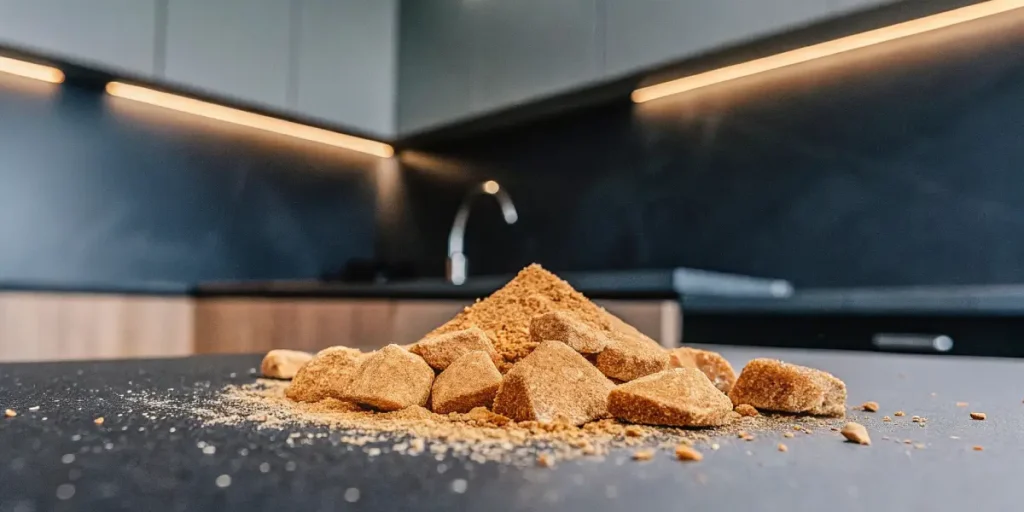
FAQs
Does kief lose potency over time?
Yes, kief can lose its potency over time, especially if not stored properly. Exposure to air, light, and temperature fluctuations can degrade the cannabinoids, leading to a loss of effectiveness. This is why understanding how to store kief long term is crucial for maintaining its potency.
To maximize potency, store kief in an airtight container in a cool, dark place. Regularly check for signs of degradation, such as changes in color or aroma. Using these tips can help keep your kief as potent as when you first collected it.
It’s also beneficial to understand the various factors contributing to potency loss. By being aware of these, you can take steps to mitigate their effects, ensuring your kief remains effective over time. This strategy not only answers “does kief lose potency over time?” but also helps maintain its quality.
Investing in quality storage solutions is another way to prolong the efficacy of your kief. By protecting it from the elements that accelerate degradation, you can enjoy its effects for an extended period, bringing peace of mind to cannabis enthusiasts.
What is the best way to preserve kief freshness?
The best way to preserve kief freshness is by using airtight glass jars. These containers limit air exposure and protect the kief from light. Additionally, storing the jars in a cool, dark place further enhances preservation.
Adding a humidity control pack can also be beneficial. It helps maintain an optimal environment, preventing the kief from drying out or becoming too moist. This method is effective for maintaining the quality of various cannabis strains, such as White Widow from Global Green Genetics.
Choosing the right storage method is crucial in answering the question, “how to store kief long term?” The combination of airtight containers and humidity control ensures that kief remains potent and fresh, preserving its desired effects.
By adopting these best practices, you not only extend the shelf life of kief in jars but also enjoy a consistent and high-quality experience each time you use it. This approach guarantees that your kief remains as effective as the day it was collected.
How long is the shelf life of kief in jars?
The shelf life of kief in jars can vary, but generally, it can last for several months to a year if stored properly. The key is to minimize exposure to air, light, and moisture, which are the main factors that lead to degradation.
For those specifically wondering how long does kief last in a jar, the answer depends entirely on storage conditions. In an airtight glass jar stored in a cool, dark place, kief can remain stable for up to a year, whereas exposure to heat or light can significantly shorten that timeframe.
By using airtight containers and storing them in a suitable environment, the longevity of kief can be significantly extended. Regular checks for any signs kief has gone bad can also help ensure that you are consuming a quality product.
Understanding the shelf life of kief in jars is crucial for planning your usage and storage strategy. Knowing how long you can expect your kief to last allows you to make informed decisions about purchases and storage options.
For those who use kief regularly, keeping track of its condition over time can prevent waste and ensure that you’re always using a product that meets your expectations in potency and quality. This diligence helps answer the question, “does kief expire?” and how to mitigate it.
Can I store kief with cannabis seeds?
It’s not advisable to store kief with cannabis seeds in the same container. Kief and seeds require different storage conditions. Seeds prefer a slightly warmer environment, while kief needs a cooler, darker space to maintain its potency.
For optimal results, store each separately according to their specific needs. This approach will ensure that both your kief and cannabis seeds from Global Green Genetics remain in the best condition possible.
Understanding the distinct storage requirements of kief and seeds helps prevent the degradation of both. By keeping them separate, you ensure that each product maintains its integrity and effectiveness over time, reducing the risk of asking, “does kief expire prematurely?”
Separate storage also allows you to optimize the conditions for each product. Tailoring the environment to their specific needs ensures that your cannabis experience is as enjoyable and potent as possible, enhancing the overall quality of your collection.
What are common mistakes in storing kief?
A common mistake is leaving kief exposed to air and light. These elements can quickly degrade its quality. Always use airtight containers and store them in a dark place to avoid this issue.
Another mistake is neglecting to control humidity. Excess moisture can lead to mold, while too little can dry out the kief. Using a humidity control pack can help maintain the right balance and preserve the kief’s freshness.
Recognizing and avoiding these common mistakes is essential for anyone wondering “how to store kief long term” effectively. By addressing these issues, you can significantly extend the shelf life of kief in jars and maintain its potency.
Being proactive in your storage approach not only improves the longevity of your kief but also enhances your overall cannabis experience. This diligence ensures that you’re always using a product that meets high standards, preventing the need to frequently ask, “does kief expire?”

